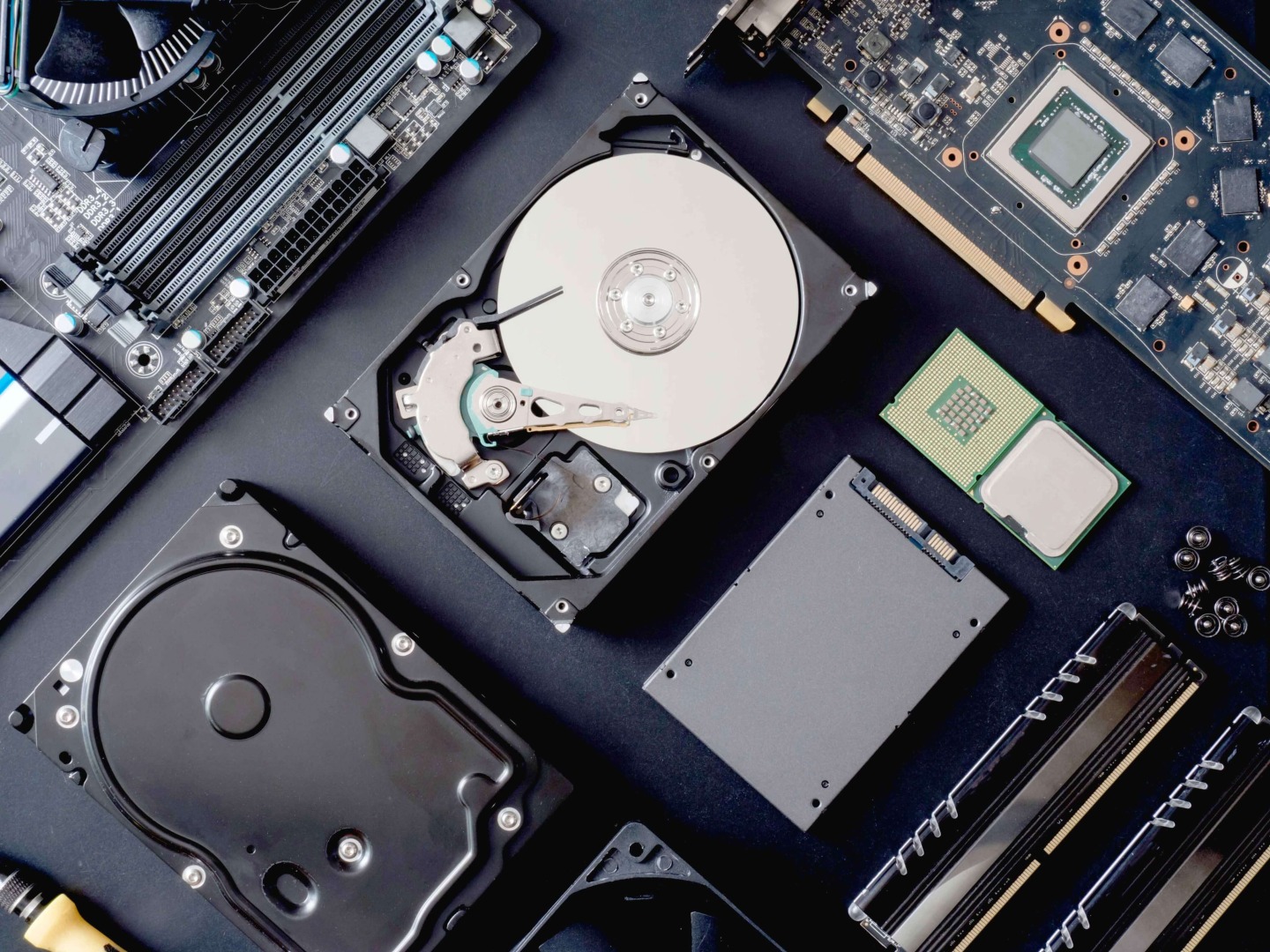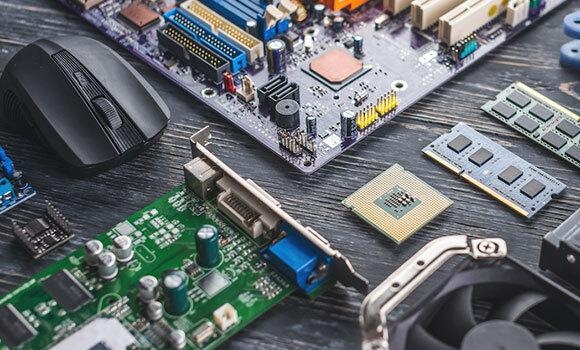Comments
- No comments found

Hardware is the unsung hero that powers the digital world.
While software may capture much of the attention, it's the physical components that underpin our digital devices and make our modern technological lifestyle possible.
Modern computing relies heavily on hardware components, each playing a specific role in delivering versatile solutions for different tasks. Gaming enthusiasts understand the crucial role of high-performance hardware, from powerful graphics cards to responsive peripherals, in ensuring a top-tier gaming experience. Technological innovation often hinges on breakthroughs in hardware design, pushing the boundaries of what is possible in fields such as artificial intelligence and space exploration.
Hardware's importance continues to grow as it adapts to meet the demands of an increasingly interconnected and technology-driven world.
This article explore the pivotal role that hardware plays in our lives, exploring different types of hardware, their use cases, and, most importantly, the profound importance of hardware.

Hardware is important because it forms the physical foundation of all digital technology. It provides the essential infrastructure upon which software runs and enables devices to function. Here are several key reasons why hardware is important:
1. Monitoring Performance: High-quality hardware components are essential for fast and efficient device performance. They determine the speed at which tasks are executed and the device's overall capabilities.
2. Testing the Reliability and Durability of Devices: Good hardware contributes to the reliability and durability of devices. Well-constructed components are less likely to fail, increasing the longevity of devices and reducing long-term costs.
3. Empowering Innovation: Innovative hardware drives technological advancements. It's responsible for enabling cutting-edge technologies, such as virtual reality, artificial intelligence, and self-driving cars.
4. Ensuring Security: Hardware plays a vital role in ensuring data security. Features like hardware encryption and biometric authentication provide robust protection against cyber threats.
5. Impacting the User Experience: The quality of hardware directly impacts the user experience. Faster processors, better graphics, and seamless connectivity are all made possible through hardware.

Hardware encompasses a wide range of components and devices, each with its specific functions and uses. Here are some of the different types of hardware:
Central Processing Unit (CPU): The CPU is the "brain" of a computer, responsible for executing instructions and performing calculations. It's a fundamental component of any computing device.
Motherboard: The motherboard is the main circuit board of a computer, connecting and allowing communication between all other hardware components.
Random Access Memory (RAM): RAM provides temporary storage for data that the CPU is currently working on. It allows for quick data access and manipulation.
Hard Disk Drive (HDD) and Solid State Drive (SSD): These are storage devices. HDDs store data on spinning disks, while SSDs use flash memory for faster data access. Both are used for long-term data storage.
Graphics Processing Unit (GPU): Also known as a graphics card, the GPU is responsible for rendering images, videos, and animations. It's crucial for gaming and graphic-intensive tasks.
Power Supply Unit (PSU): The PSU converts electrical energy from the outlet into a form that the computer can use. It provides power to all components.
Optical Drives: Devices like CD/DVD drives or Blu-ray drives for reading and writing optical discs.
Network Interface Card (NIC): NICs enable network connectivity, allowing devices to connect to the internet or local networks.
Sound Cards: These cards handle audio processing, providing the sound output for computers and other devices.
Printers and Scanners: Peripheral hardware devices for producing physical copies of documents and for digitizing physical documents, respectively.
Input Devices: These include keyboards, mice, touchscreens, and stylus pens, which allow users to input commands and data into a computer.
Output Devices: Examples include monitors, speakers, and headphones, which provide visual or audio feedback to the user.
Routers and Modems: Networking hardware for connecting to the internet and distributing the connection throughout a home or office.
External Storage Devices: Devices like USB drives, external hard drives, and memory cards used for additional data storage and transfer.
Wearable Devices: Hardware integrated into items like smartwatches and fitness trackers, offering features such as fitness monitoring and notifications.
Embedded Systems: Specialized hardware used within other devices, such as microcontrollers in appliances, cars, and industrial equipment.
Server Hardware: Components designed for use in data centers and server rooms to host websites, applications, and data.
Mobile Device Components: Including batteries, screens, processors, and sensors used in smartphones and tablets.
Robotics Hardware: Components used in the construction and operation of robots, such as motors, sensors, and microcontrollers.
Gaming Consoles: Specialized hardware designed for gaming, including consoles like PlayStation, Xbox, and Nintendo Switch.
These are just some of the many hardware components and devices that play vital roles in our digital world. The importance and diversity of hardware continue to expand as technology advances.
At the core of every digital device, from your smartphone to the most powerful supercomputers, lies a Central Processing Unit, or CPU. CPUs are the workhorses of the digital world, responsible for executing instructions and performing calculations. They determine the speed and capabilities of your device, making them a fundamental type of hardware.
While CPUs handle general-purpose tasks, Graphics Processing Units, or GPUs, specialize in rendering images and videos. Beyond just making your video games look stunning, GPUs are now critical for complex tasks such as artificial intelligence, scientific simulations, and even cryptocurrency mining. Their parallel processing power can't be overlooked.
Random Access Memory (RAM) and storage devices like Hard Disk Drives (HDDs) and Solid State Drives (SSDs) are your device's memory. RAM provides lightning-fast, temporary storage for data that your CPU needs right now, while storage devices preserve data for the long term. A seamless dance between these hardware components keeps your digital world running smoothly.
In our hyper-connected world, networking hardware is the backbone of our digital communications. Routers, switches, and modems ensure that data flows seamlessly between devices and the internet. They're the gatekeepers of your online experience, ensuring that your Netflix binge and Zoom meetings go off without a hitch.
From smart thermostats to your car's engine control unit, embedded systems are hidden champions of the hardware world. These dedicated systems are purpose-built to perform specific tasks. They ensure that your devices function efficiently and often without your direct input.

While software may get the glory, hardware is the unsung hero that powers the digital revolution. It's the backbone of the technological wonders we often take for granted. From CPUs and GPUs to RAM, storage devices, and networking hardware, each component plays a crucial role. So, next time you marvel at a stunning video game, enjoy lightning-fast load times, or stay connected with loved ones worldwide, remember the importance of hardware—the beating heart of our digital world.
Nitin is the CEO of Mobile Doorman, a former Management Consultant at McKinsey & Company and Board of Trustees Member at the Naperville Public Library. He advises Company Boards, CEOs and BU heads on product strategy, growth and operations. He also has multiple US patents (5) for design and development of mobile, wireless and networking technology including a patent to extend smartphone battery life. Nitin holds a masters in Electrical & Computer Engineering from the University of Texas at Austin and an MBA in Marketing & Finance from the University of Chicago Booth School of Business.
Leave your comments
Post comment as a guest